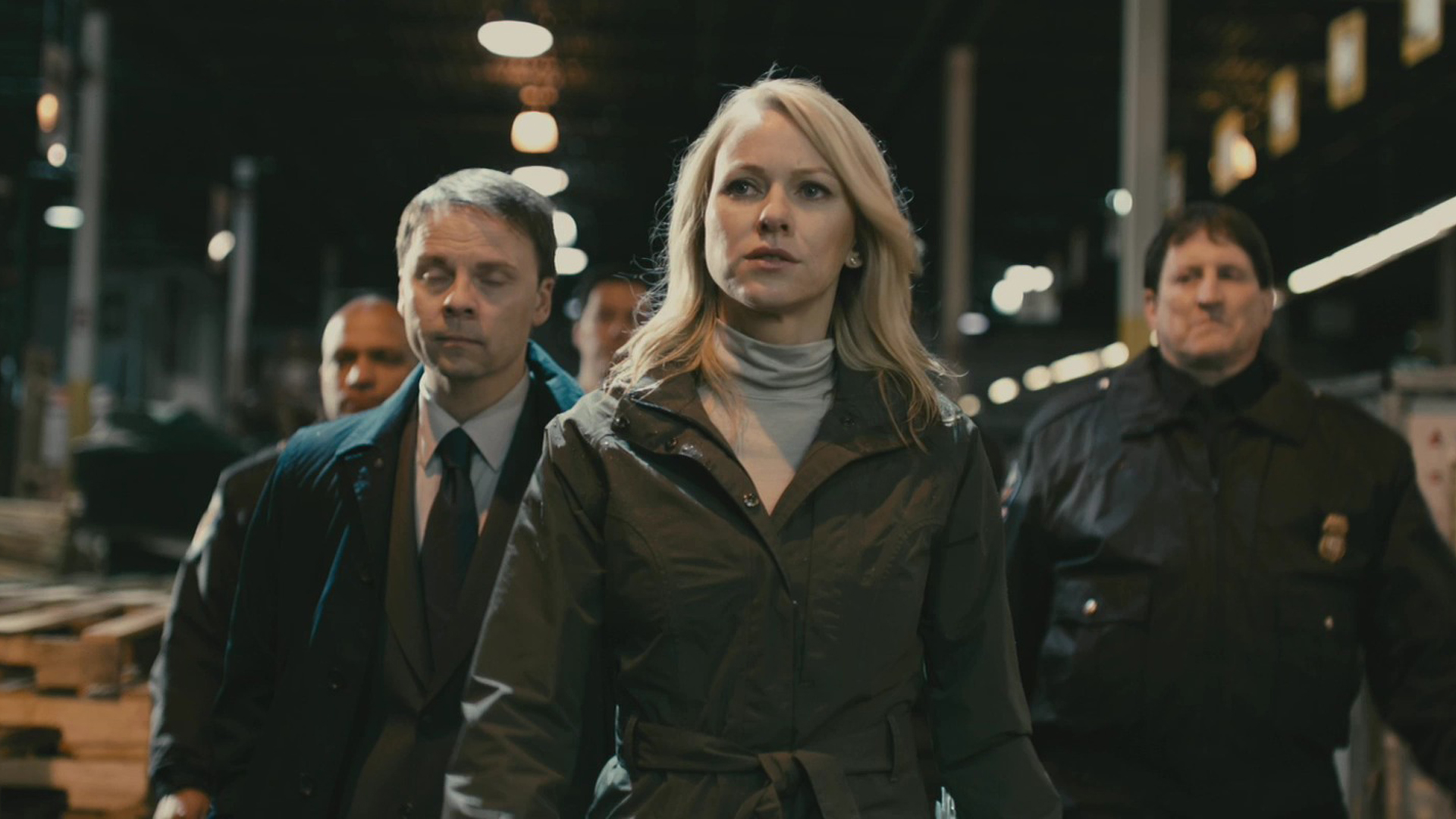By Chlotrudis Independent Film Society
Rating: 4 cats
Director: Doug Liman
Starring: Brooke Smith | David Andrews | Naomi Watts | Norbert Leo Butz | Sean Penn

Country: united_states
Year: 2010
Running time: 67
IMDB: http://www.imdb.com/title/tt0977855/
Jason says: “FAIR GAME is a good movie that is going to have a target on its back for all the wrong reasons. If the story were relocated and names were changed, both its issues and its strengths would be thrown into sharper relief (along with how they are inextricably tied to each other), but it’s contemporary enough and the current state of political discourse is contentious enough that folks may overlook that it tells the story it aims to tell rather well, with a couple of excellent performances.
“We start in fall of 2001, with CIA operative and analyst Valerie Plame (Naomi Watts) using her cover as a venture capitalist to help track potential sales of atomic materials in the middle east. Intelligence isn’t quite the family business, but word of Iraq potentially putting together materials for a weapon of mass destruction leads to her and the Agency recruiting her husband, former ambassador Joe Wilson (Sean Penn), to use his contacts to find out if yellowcake uranium is being smuggled out of Niger. The investigation strongly suggests that it is not the case, so Joe, Valerie, and her colleages are shocked when the President announces the exact opposite during the State of the Union address. Joe writes an article in the New York Times describing his trip to Niger, and in seeming retaliation, Administration officials leak that Plame is a field agent to the press – which not only endangers ongoing operations, but multiplies to the strain on their marriage that Joe’s article had created.
“The first half of the film is an engrossing look at the process of gathering intelligence. Director Doug Liman has made a career of directing and producing spy movies that, while occasionally more grounded than the James Bond franchise, are still escapist fantasies. Here, he places the focus on an intelligence professional’s primary job, procuring information and trying to form a larger picture from it. The details are interesting, giving us perspectives on ‘human intelligence’ rarely seen in the movies, where even though the agents and assets are often quite smart, they are far from superhuman, and seeing the different sources it comes from, as well as the demands placed upon these people from the bureaucracy.
“In the second half of the movie, after Plame’s name is released, the focus splits. The ‘intelligence operations’ part of the story shifts to her worrying about her assets in Iraq, and then peters out entirely; she’s not in the loop any more. Some time is spent on the mechanics of how Scooter Libby (David Andrews) and other Administration officials are working to cover their own backs and discredit Joe and Valerie. The bulk is spent on the couple’s difficulty in handling the accusations thrown at them, their different principles, and the very different ways they want to handle the situation into which they’ve been thrust.
“Liman and screenwriters Jez and John-Henry Butterworth (working from Wilson’s and Plame’s books) do well in transitioning from mostly being a spy movie to a drama about Valerie’s and Joe’s fractured relationship. It can seem like a bit of a let-down, though – as extremely well as Penn, Watts, and the filmmakers play this story, one couple’s marriage can seem somewhat like small potatoes compared to dozens of Iraqi scientists who now have their lives in danger, or the pettiness of the highest offices in the land burning Plame and her operations when caught in a lie. If either of those are what the audience has come to see, the more personal stakes can be a little disappointing.
“It’s still compelling, though, in large part because of how good Watts and Penn are. Naomi Watts is great as Valerie Plame; getting across the extreme self-confidence – the type that borders on arrogance – necessary for her job while still coming across as a caring and sympathetic person. She’s an unusual combination of emotional and stoic, well able to communicate the frustration that somebody who would traditionally be placed in the hero’s role has at being forced to the side. Still, it may be Sean Penn who has the more interesting role and performance. Joe’s self-confidence doesn’t just border on arrogance, it frequently crosses the line, both in obvious ways like his idiosyncratic pronunciation of Niger (‘nee-jair’, so as not to confuse with Nigeria), and how he clearly enjoys being on television and casting himself as a crusader for justice. Both are presented as intelligent and capable enough that their opposing views of how to handle the situation.
“One thing especially worth noting – and which prevents the last half from becoming overwrought – is that the filmmakers don’t make the story about Valerie as a woman. They’ve got chances to poke that hornet’s nest and play it as Joe resenting his wife currently being the family breadwinner with the sexy job, but generally back off once they’re past the point where the absence of this sort of thing as a factor would be noticeable. It lets the audience see the couple more clearly as equals, and prevents the issues larger than one couple’s marriage from being reduced to soap opera.
“It admittedly can still be a bit of a let-down to have a story with national and global implications wind up being told from what occasionally seems like a narrow perspective. That’s the story that the filmmakers chose to tell, though, and they tell it very well without ignoring the much broader scope. 4 cats
“Seen 7 November 2010 at AMC Boston Common #19 (first-run)”
